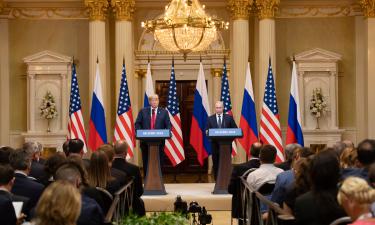UCI denies WADA accusations over Armstrong leak, says Pound blocked inquest
The International Cycling Union denies accusations that its president supplied a French sports newspaper with documents which it used to accuse Lance Armstrong of doping at the 1999 Tour de France.
Also on Monday, the UCI said World Anti-Doping Agency chief Dick Pound was blocking its investigation by withholding information.
Pound said last week he received a letter from UCI president Hein Verbruggen saying he had provided L'Equipe with forms indicating Armstrong had tested positive for EPO during his first Tour victory.
"Mr. Pound's transparently erroneous statements about the UCI being the source of the forms are difficult to explain, except that they appear to be an attempt by Mr. Pound to draw attention away from his efforts to obstruct and delay the UCI investigation," UCI said in a statement.
"Mr. Verbruggen has never been involved personally, contrary to what Mr. Pound said in another statement. However, it is also apparent that the reporters were given at least five and perhaps 15 of Lance Armstrong's doping control forms from the 1999 Tour de France, and it is certain that those forms did not come from the UCI."
The UCI said it was conducting an investigation at WADA's request.
"It has been three weeks ... and WADA has failed, to date, to provide all the documents and information we have requested, which we need to conduct the investigation, even though WADA has stated its willingness to assist the UCI," the statement added.
"The investigation of the testing and the results that were published must logically start with the laboratory and WADA and we are waiting for a response from them to our questions."
UCI also called on WADA to either censure its chief or assign someone else to deal with this case.
"It is essential for the WADA Board to hold Mr. Pound accountable and ... act swiftly and definitively to establish that conduct of this type will not be tolerated."
Last month, L'Equipe published evidence allegedly showing that six of Armstrong's frozen urine samples from 1999 came back positive for endurance-boosting EPO when they were retested last year.
The seven-time Tour de France champion denied ever using banned drugs, and said he was the victim of a "witch hunt."
UCI said it had not received enough information to make a judgment on the allegations. It also criticized L'Equipe for targeting Armstrong, and criticized Pound for making public statements on the "likely guilt of the athlete" without knowing all the facts.
Pound questioned the UCI's willingness to fully investigate L'Equipe's allegations and wondered whether the cycling body was merely looking for a "scapegoat."
"We're waiting to see whether they have a commitment to get at the truth and the whole truth before we decide to participate further in the investigation," Pound said at the time. "If one of the issues that the UCI wants to explore is how some of this information became public, that's fine. But we're not prepared to sit by and participate in an investigation that focuses only on how the information became public.", AP reported.
Subscribe to Pravda.Ru Telegram channel, Facebook, RSS!





